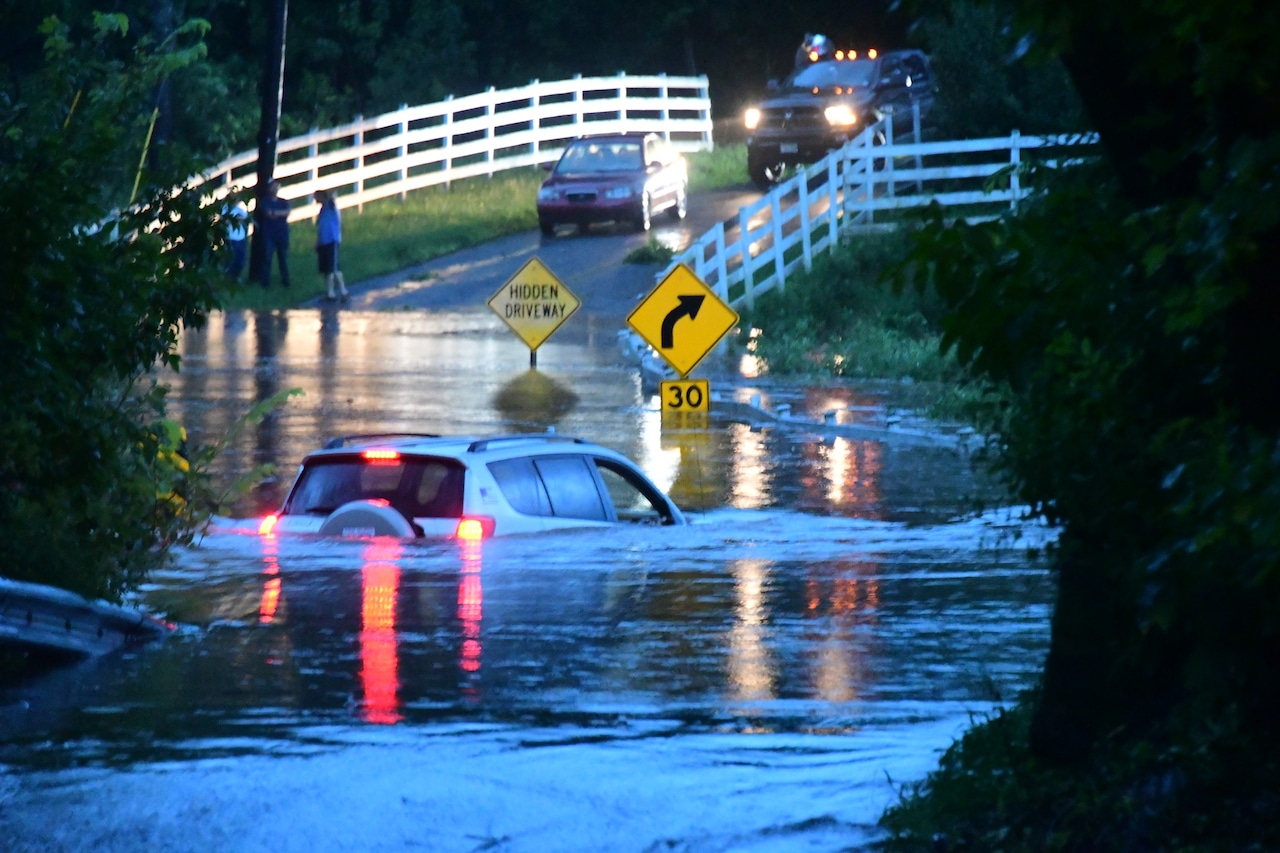Residents of Raritan Township still remember the devastation caused by Tropical Storm Ida in September 2021.
Few Raritan Township residents will ever forget the six drownings in Hunterdon County or the 11 inches of rain that Ida delivered.
86 individuals were saved by first responders in Raritan Township during that storm, which is still one of the deadliest in New Jersey and claimed 30 lives statewide.
In addition to the many flash floods that occur every summer and are just as devastating, Ida followed Superstorm Sandy (2012), Hurricane Irene (2011), and Hurricane Floyd (1999).
Raritan Township is launching its own stormwater utility to earn funds to upgrade its infrastructure and reduce flood hazards brought on by climate change, four years after Ida and as another hurricane season approaches.
The creation of the stormwater utility, which is financed by an assessment imposed on each property owner, was approved unanimously by the Raritan Township Committee in June.
Raritan Township Mayor Bob King stated that flooding must be addressed and that the utility offers a reliable source of financing for infrastructure upkeep rather than taking funds out of the municipal budget, despite the fact that some detractors refer to the assessment as a rain tax.
It basically boils down to how we will pay for the work that has to be done. King stated.
According to King, all New Jersey municipalities are required to follow the DEP’s stormwater standards. According to him, the decision was between establishing the service in the community where floods has claimed lives and increasing municipal taxes.
King stated, “We don’t want anyone to die in our town.”
With the passage of the Clean Stormwater and Flood Reduction Act of 2019, the state Legislature gave municipalities permission to create stormwater utilities. Raritan Township is just the third municipality to create one; the others are New Brunswick and Maplewood. However, the concept has not gained much traction.
Each landowner pays an annual charge to the utility, which is determined by the total square footage of impervious coverage on their property. Any surface that doesn’t absorb water, such as a parking lot, road, rooftop, or sidewalk, is considered impermeable.
According to Raritan Township, the first charge will be sent to property owners in September. About one-third of the property owner’s anticipated 2026 expenses are represented by that bill, which is for the last quarter of 2025.
According to Raritan Township, the typical annual payment for a single-family homeowner will range from $60 to $240. However, supermarkets and other big box retailers with large parking lots will be responsible for thousands of dollars every year.
The stormwater charge does not apply to churches or non-profits, which are exempt from property taxes. Federal buildings and water-absorbing agricultural land are the only properties exempt.
Supporters argue that a stormwater utility is the most equitable and fair approach to maintain and upgrade the system of pipes, detention basins, and culverts that can be overloaded by heavy rains, while others may view it as a tax.
According to King, the utility will also be used for street sweeping and leaf collection. According to the mayor, property owners can request for credit if they create rain gardens or other measures that lessen their impermeable surface.
According to Arcadis, the township’s expert, the utility’s operational budget in 2026 will be $1.8 million.
Concrete makes up 15% of the state’s land mass, and rain simply bounces off it, according to Ed Potosnak, executive director of the League of Conservation Voters’ New Jersey branch. In metropolitan regions, where flash floods are growing more common and dangerous, the percentage of imprevious surface is also significantly increasing.
Nobody is at blame, but Potosnak claimed that our development was carried out without adequate stormwater management. Since the people who are mostly to blame for the runoff issue bear the financial burden, a stormwater utility is the most equitable approach to solving it.
Historically, towns and cities have used their municipal budgets to pay for stormwater management, frequently with matching grants from the federal government and the states. However, Potosnak cautions that since the Trump administration has reduced funding for flood mitigation and FEMA, those funds are running out.
According to Potosnak, funding for these kinds of projects is just not being airdropped in. The establishment of stormwater utilities will need to be investigated by responsible governments.
Stories by
Richard Cowen
-
N.J town wants to build an artificial turf field next to a historic site. That plan just hit a major obstacle.
-
N.J. felon involved in shootout with federal agents charged with attempted murder, officials say
-
Water pressure back to normal 11 days after break affected 200,000 N.J. residents, utility says
Your support is essential to our journalism. Please sign up for NJ.com now.
You can contact Richard Cowen at [email protected].






